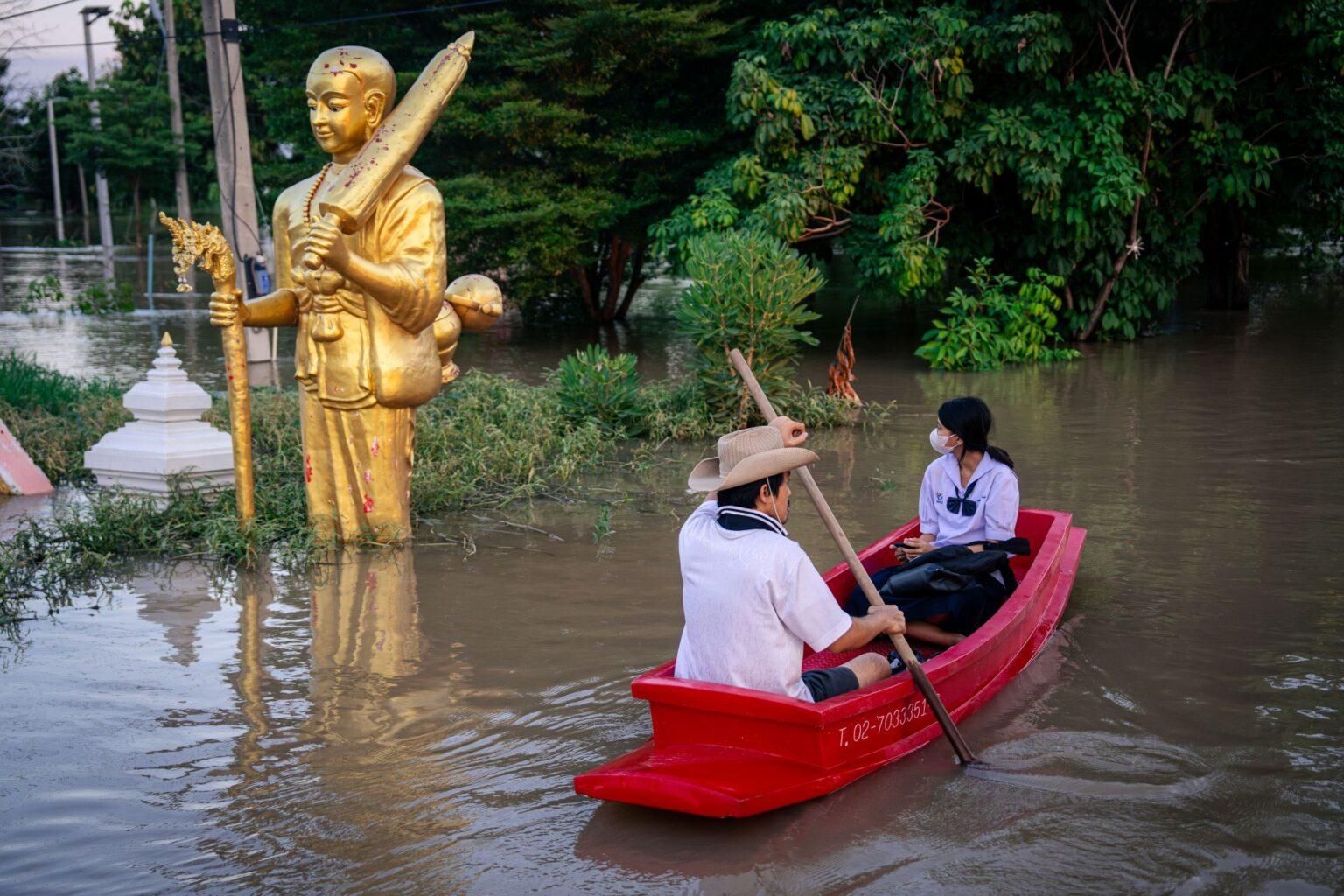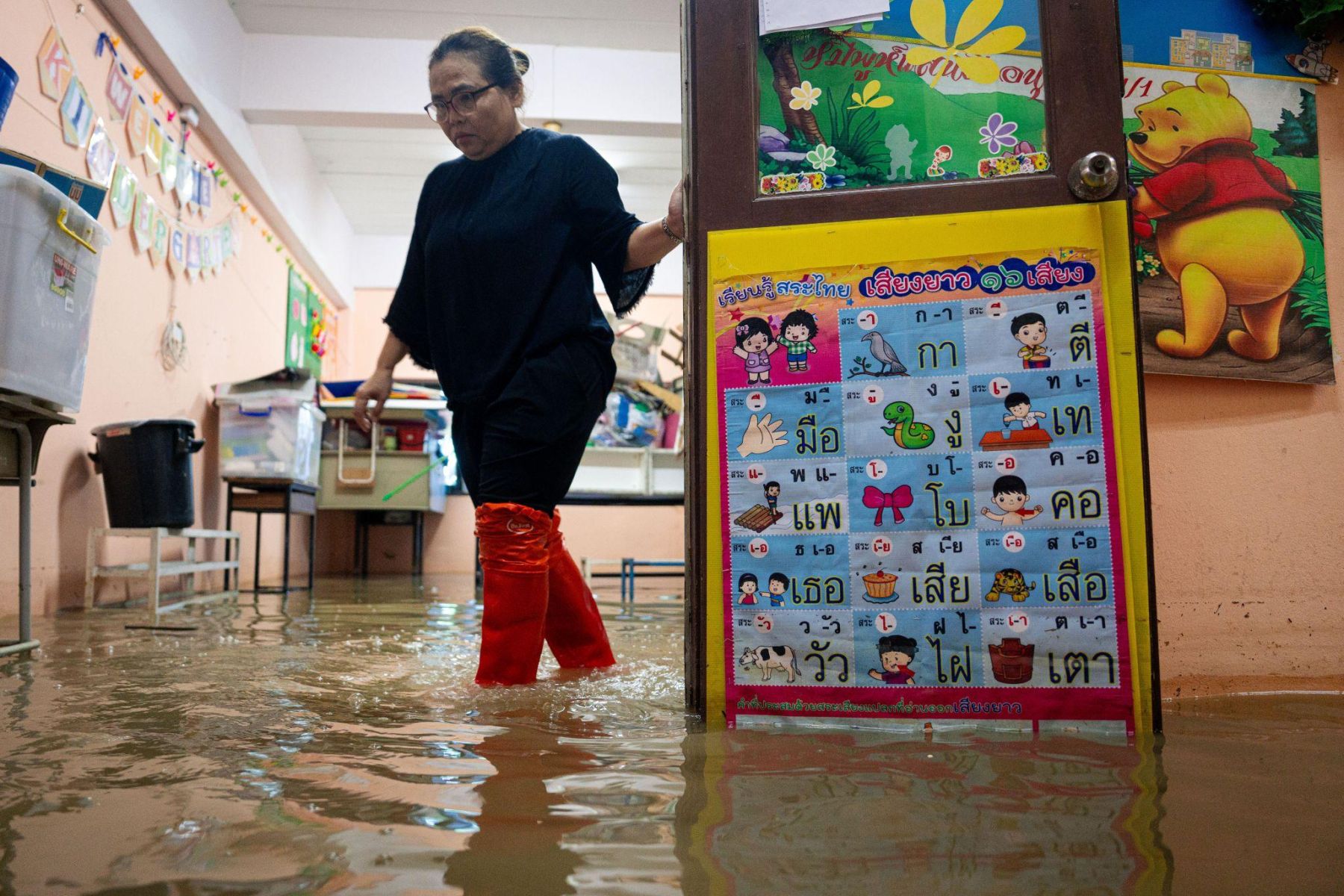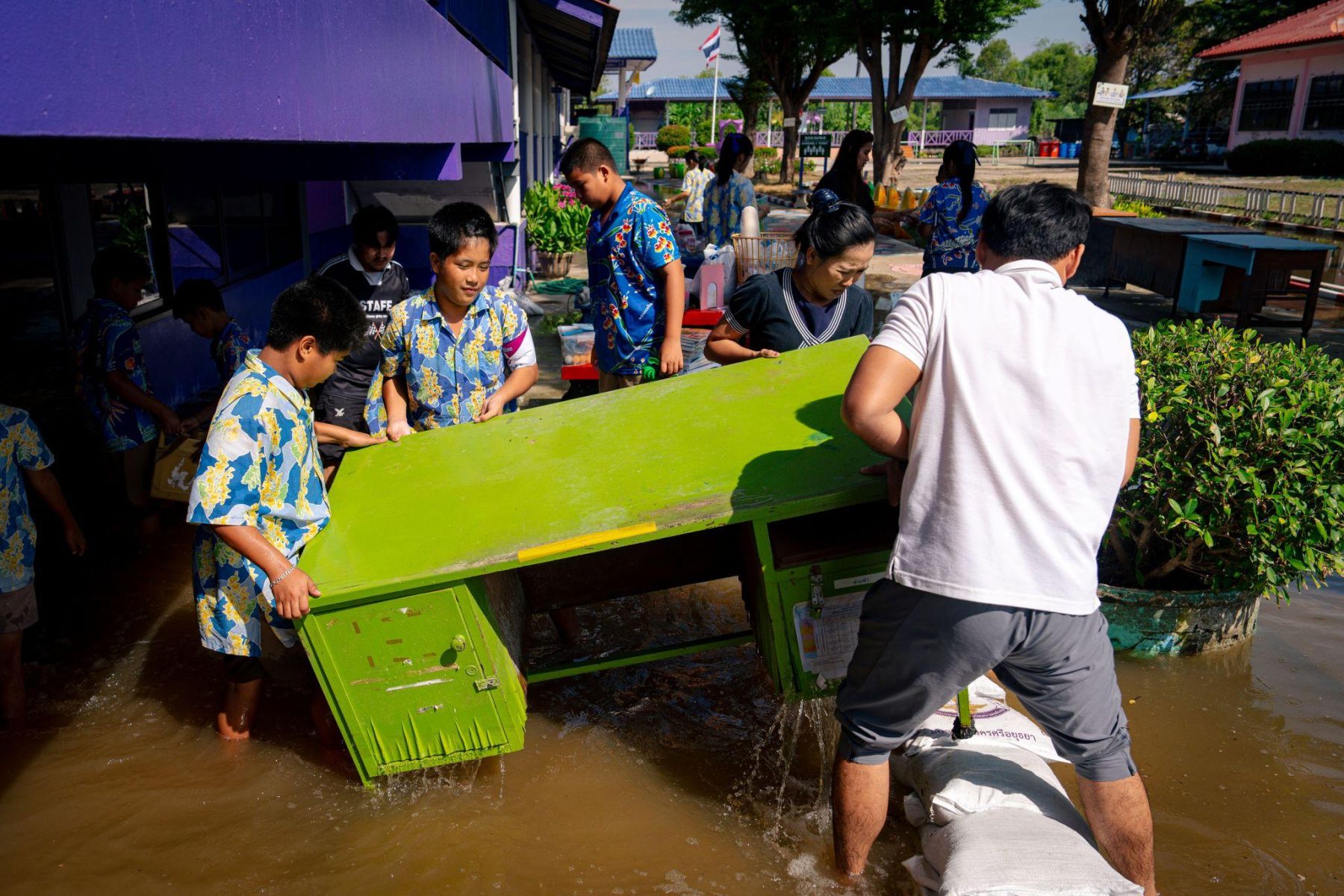Floods disrupt Thai schools, UNICEF urges urgent climate action
New survey warns the climate crisis is putting children’s education at serious risk

Heavy rainfall and severe flooding continue to disrupt educational activities in several provinces across Thailand, with recent events particularly affecting schools in many districts of Ayutthaya province.
A survey conducted by the National Institute of Development Administration (NIDA) in collaboration with UNICEF has revealed that nearly all schools in the country have faced extreme weather in recent years, highlighting a lack of support for maintaining children’s education and well-being amidst climate challenges.
Conducted between July and August 2025, the survey gathered data from 329 public schools, including 14 catering to children with disabilities, across fourteen provinces. These areas have been most affected by extreme weather over the past three years, including Chiang Rai, Chiang Mai, Nakhon Ratchasima, Yala, and Narathiwat.
The findings underscore the increasing vulnerability of schools and students to the adverse impacts of heavy rains, flooding, and heatwaves driven by climate change.
Every school surveyed had experienced at least one extreme weather event in the past three years, with heavy rainfall, storms, and flooding identified as the most severe hazards.
The impacts have been extensive, with three out of four schools reporting disruptions to essential utilities and services such as safe drinking water, sanitation, food, and school transportation.

Moreover, over half of the schools, or 55%, noted health issues among students, including heat-related, vector-borne, and water-borne diseases like dengue fever, diarrhoea, respiratory ailments, malnutrition, and mental health conditions.
Nearly half of the schools, at 46%, reported damage to infrastructure. Alarmingly, about 50% of the schools indicated they had not received any assistance following such events.
Among those that did receive help, the support was primarily limited to early warning messages (41%), disaster preparedness training (35%), or emergency relief (34%).
Severine Leonardi, Deputy Representative for UNICEF Thailand, emphasised the severity of the situation, stating, ‘The data paints a stark picture, revealing that every child’s right to education is increasingly threatened by the climate crisis. The climate crisis won’t wait, we must act with urgency. Schools need knowledge, infrastructure, and resources to keep children learning safely, even in the face of floods or heatwaves. The cost of inaction will be measured in lost learning and lost potential.’
In the previous year alone, flooding caused by Typhoon Yagi affected more than 19,000 students across 555 schools in northern Thailand, forcing educators to resort to online teaching and distributing learning materials directly to students’ homes.
The survey also highlighted schools’ awareness of escalating risks, with two-thirds expecting heavier rainfall and flooding, and over half anticipating worsening heatwaves in the coming years. Health risks to students, including illness, injury, and potential loss of life, emerged as the primary concern for schools.
In terms of preparedness, over half of the schools, 53%, rated their readiness as only ‘moderate.’ Their most pressing needs include training and educational activities for students on climate change and adaptation, teacher training on climate resilience and emergency response, and timely, reliable early warning information.

Although nearly all schools have integrated climate change topics into their curricula, over 80% of teachers have never received formal training on climate education or how to prepare for extreme weather, relying mainly on self-learning.
Consequently, students’ understanding of climate change remains low to moderate. Schools serving children with disabilities reported even higher needs, particularly concerning teacher training, modern learning materials and equipment, and adequate funding for climate-related education.
Thailand ranks among the most vulnerable countries to climate change. According to the 2025 Global Climate Risk Index, Thailand is the 30th most affected nation due to climate change.
A 2021 UNICEF global analysis positioned Thailand as the 50th out of 163 countries where children face the highest risks from climate impacts. More recent estimates suggest that 10.8 million children in Thailand are highly exposed to flooding and water scarcity.
Leonardi further added, ‘Schools are on the frontline of the climate crisis. We must invest now in strengthening their capacity to adapt and ensure that every child – including those in flood-prone and remote areas – can continue learning safely. Preparing schools and the wider education system for the changing climate is not optional; it’s essential for every child’s future.’
UNICEF is collaborating with the Ministry of Education, the Department of Climate Change and Environment, and other partners to promote Climate Smart Education.
This initiative ensures that schools throughout Thailand remain safe, resilient, and inclusive, enabling every child to learn and thrive despite the challenges posed by a changing climate, reported by the Pattaya News.
Latest Thailand News
Follow The Thaiger on Google News:


























